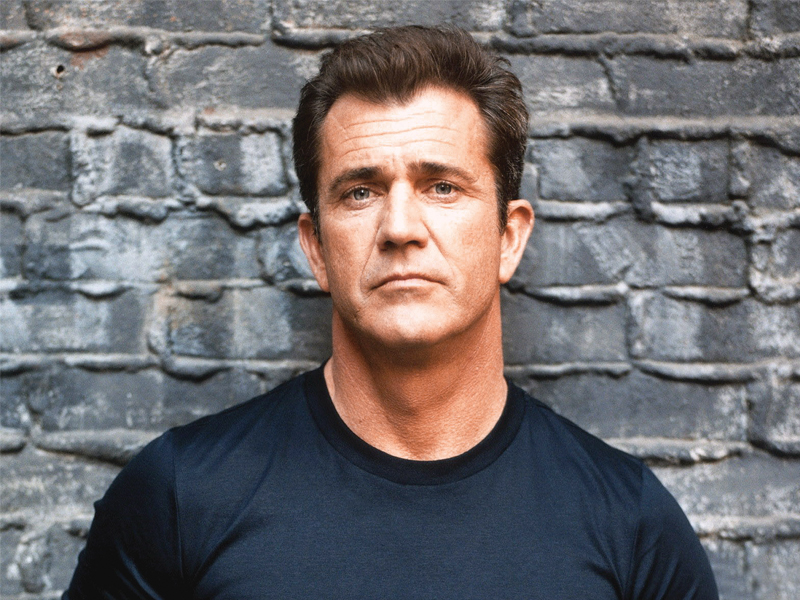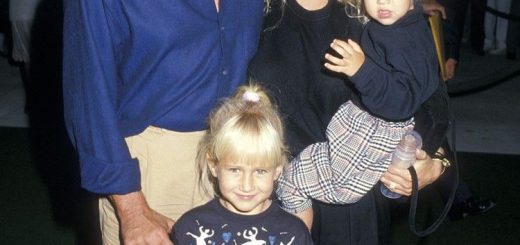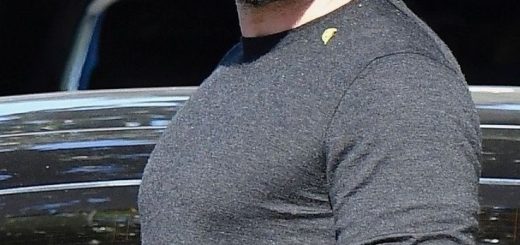How Does Mel Gibson Still Have a Career?
In 2016, Mel Gibson received a 10-minute standing ovation at the Venice Film Festival where he premiered “Hacksaw Ridge,” which, propelled by a rapturous reception in Italy, went on to receive six Oscar nominations. That included a nod for Gibson for best director. The World War II drama was the first film Gibson had directed in more than a decade.
The hiatus was largely due to being virtually shut out from Hollywood, an expulsion prompted by the infamous Malibu DUI arrest in 2006 during which he unleashed an anti-Semitic rant. That was followed by leaked tapes in 2010 where Gibson screamed racist remarks, including using the n-word, at his then-girlfriend, Oksana Grigorieva, the mother of one of his nine children. She later alleged Gibson was physically abusive. Even before his fall from grace, Gibson had routinely been in trouble for homophobic comments.
The messy headlines diminished Gibson’s star power and made him virtually un-hireable, but then he bounced back.
Last week, Winona Ryder spoke about a time in the 1990s when she recalls Gibson making anti-Semitic and homophobic comments – calling her an “oven-dodger,” a reference to the Holocaust — which Gibson aggressively denied, calling her a liar. It wasn’t the first time Ryder has spoken of the alleged incident, which first came up in a magazine interview over a decade ago, but with her recent comments, the public was reminded of Gibson’s history of bad behavior. In the age of cancel culture, when one slip-up can kill a career, Gibson has managed to survive, despite insulting and denigrating gay, Black, and Jewish people at several different times.
As social justice movements have swept Hollywood, the entertainment industry has taken notice and is holding its own members accountable. Amid anti-racism efforts following George Floyd’s killing, a number of comedians from Jimmy Kimmel to Jimmy Fallon to Howard Stern have apologized for wearing blackface in skits; reality stars from “Vanderpump Rules” have been fired for racist tweets; and Lea Michele lost endorsement deals when a former co-star accused her of bad behavior on set.
Throughout the years, Gibson’s career has been riddled with accusations of anti-Semitism, homophobia, racism and domestic violence. Ryder’s statement resurfaced Gibson’s many controversies, which are now being viewed through the socially-conscious lens of 2020.
Like many other recent Hollywood scandals, social media outcry has ensued — as typified by one Twitter user writing, “Mel Gibson is an anti-Semitic lowlife who doesn’t ever deserve to hold another job in Hollywood.”
Jonathan Greenblatt, CEO of the Anti-Defamation League, tweeted, “Winona Ryder’s account is another example of Mel Gibson’s disgusting anti-Semitism and homophobia. But it’s not just about hate. The same white male privilege and power that props up a bigot like Gibson also safeguards a system that holds back so many talented, diverse artists.”
This week, Gibson’s latest film, Lionsgate’s action thriller, “Force of Nature,” was released, and Lionsgate declined to comment on Ryder’s allegations. The actor has a healthy number of projects lined up, albeit from lower-profile production companies. These include low-budget films “Fatman,” “Last Looks” and “Boss Level,” and one major studio flick — the reboot of “Wild Bunch,” which Gibson is set to direct. Warner Bros. confirmed to Variety this week that Gibson is still attached to direct “Wild Bunch,” which is in early development.

At the time of his 2006 arrest, Gibson was notoriously dropped by Ari Emanuel, with whom he’s since made amends. He is currently repped by CAA, which signed him in 2017, after the success of “Hacksaw Ridge.” The agency had no comment.
But sources say that after Gibson’s denial of Ryder’s “oven dodger” comment – in which he said the actress was lying, rather than acknowledging her perspective of the events – people in the industry are questioning whether Gibson has changed. In response, they are reconsidering working with the actor, writer and director. One high-powered publicist tells Variety they received a call from a producer seeking advice on collaborating with Gibson, especially in a day in age where companies are avoiding controversy and increasingly taking real responsibility and care with their business partners.
Gibson’s role in the animated “Chicken Run” sequel will be re-cast. But despite other reports, sources tell Variety that the casting shuffle has nothing to do with Gibson’s past behavior. Aardman Animation, which is producing “Chicken Run 2” for Netflix, declined to comment, but a person familiar with behind-the-scenes conversations says that Gibson’s team was informed he would not be asked back for the film long before Ryder’s comments, since the sequel will revolve around younger chickens, therefore casting younger voice actors.
“I don’t think it’s going to affect his career at this point, unless something new and devastating comes out,” says Howard Bragman, longtime Hollywood crisis manager and founder of La Brea Media, pointing out that Ryder’s comments were regarding a past encounter. “Mel Gibson has proven to be the exception to the rule. If there’s a new incident, people in Hollywood who’ve stood by him are going to have to re-think their association.”
Bragman briefly represented Gibson’s ex at the time of the leaked tape incident in which Gibson was heard screaming at Grigorieva, who claimed she was punched multiple times. The PR expert was not surprised Gibson had a comeback, and he believes he will continue to work. “I never write off somebody who’s a star,” Bragman says. “I always think they’re capable again of reaching greatness.”
But should Hollywood keep giving Gibson chances?
His talent is undeniable — he is one of the few actors who can move effortlessly from historical epics such as “Braveheart” to gritty action films such as “The Road Warrior” to rom-coms like “What Women Want.” He’s also an Oscar-winning director. The quality of his work, no doubt, contributed to his ability to re-enter showbiz.
But his work has also generated fierce backlash over the decades. In the mid-90’s, GLAAD organized protests over “Braveheart’s” depiction of a gay character, saying the film displayed “a typical homophobic caricature,” and in 1997, Gibson agreed to meet with the organization for an in-person discussion.
“The Passion of the Christ” was panned by many critics for promoting anti-Semitism, and yet, the epic biblical drama, which Gibson funded himself through his Icon Productions, went on to make over $600 million at the box office in 2004.
“What Winona Ryder is reporting is consistent with everything he’s ever done, so nothing has ever changed,” says Frank Rich, a writer who ferociously panned “Passion of the Christ” for its anti-Semitism propaganda and has written numerous critical pieces of Gibson over the years. Back in the day, Gibson said he wanted to kill Rich and his dog, saying, “I want his intestines on a stick.” Rich, who has never owned a dog, is now an executive producer on HBO’s “Succession.”
“What’s really happened since ‘Passion of the Christ’ is that he was ahead of the curve. Anti-Semitism has come out of the closet. Part of the dark, hateful, vicious part of our culture is that he is in fashion — even if he’s not in fashion in Hollywood,” Rich says.
Gibson has a deep bench of Hollywood supporters, though, like close friends Jodie Foster, Whoopi Goldberg, and Robert Downey Jr., who urged the industry to give Gibson a second chance when he accepted the American Cinematheque award in 2011. Gibson has patched up his relationship with Hollywood power players like Emanuel and former Sony boss Amy Pascal. “Hacksaw Ridge” producer David Permut has attributed Gibson’s anti-Semitic Malibu rant to alcoholism, and said he’s not the person he’s been made out to be in the headlines. (In a 2016 interview with Variety, Gibson addressed the DUI incident, saying he is now sober and finds it “annoying” that people bring up the incident 10 years later.)
Those close to Gibson believe he has paid the price, and has shown that he’s a changed man with no new controversies arising over the past 10 years since he has been sober.
Gibson also has his Hollywood detractors, like Seth Rogen, who responded to Ryder’s claims by tweeting, “I’m only surprised by Mel Gibson’s ‘oven dodger’ comment because it acknowledges the Holocaust actually happened.” When Gibson was cast as Santa Claus in the upcoming film, “Fatman,” Rogen called Gibson a “Ho-ho-holocaust denier.”
Gibson has flirted with the idea of a sequel to “Passion of the Christ,” and though insiders say the film is not currently in active development, reports of casting and plotlines have come up over the years. For Rich, the biggest risk of Gibson continuing to work in Hollywood is the messaging that projects like a “Passion of the Christ” sequel could spread around the world.
“Whether he’s hired to voice an animated movie or not, I don’t really care,” Rich says, referring to “Chicken Run 2.” “The people who put up money for a Mel Gibson movie don’t want him to make a romantic comedy. They want him to make something that is provocative and in line with his views. A movie with an anti-Semitic bias is released internationally, not just in America, and that’s sobering.”
Bragman believes that a large portion of Gibson’s audience is older and tends to ignore social media chatter.
“You have to separate the PC police from the moviegoing public. Mel Gibson has not had a career without controversy and through it all, he’s been incredibly resilient. Right, wrong or indifferent, his fans have not left him – and I don’t think they’re going to leave him now,” Bragman says. “I think the people that are Mel Gibson fans tend to be the people who might actually rebel against political correctness.”
Despite the off-camera controversies, Gibson is known as a respectful and likeable colleague with a strong work ethic on set. Numerous people who have worked with the star tell Variety they have nothing but positive experiences to share of their professional relationship with the filmmaker, from time spent on-location to traveling during press tours.
A producer who recently worked with Gibson speaks highly of the actor, but admits that his casting was initially a concern, due to the prospect of public backlash. “We thought about if it’s okay for us to work with him or if he’s still taboo,” the producer said. “We all agreed he’s out of jail because he was doing big movies and getting awards buzz. We thought it’s been a long enough time and hopefully he’s changed his behavior and made his amends.”
On set, the producer says there were zero issues with Gibson, and says the Oscar winner was an exceptional collaborator. “No issues. Not even remotely,” the producer said. “He was the first one there in the morning and the last one to leave at night. He was nice to everybody, and everybody on set loved him. I never saw any bad things about him, and he seems to have changed that part about him. I have no idea what type of guy he is to family or friends, but professionally, he is one of my favorite A-list stars I’ve ever worked with.”
The renewed interest in Gibson’s behavior after Ryder’s comments are a minor concern for this producer, even though he worked on a film with the star that has not yet been released. But Bragman believes that unless there is a new controversy, this will blow over.
“If you’re Mel Gibson, you’re a bad boy,” Bragman says. “Now, if Tom Hanks said one of those things, it would be astounding. But with Mel Gibson, we’re kind of used to it. You get numb to Mel Gibson because he’s that guy.”
“Some people can get away with things, and some people can’t,” Bragman adds. “It may be because they make a lot of money for people or it may be because they’re likable. Everyone in Hollywood has a different DNA, and there is not a set of rules. Two people may do the exact same thing and one may lose their career and one may go on and be just fine.”



